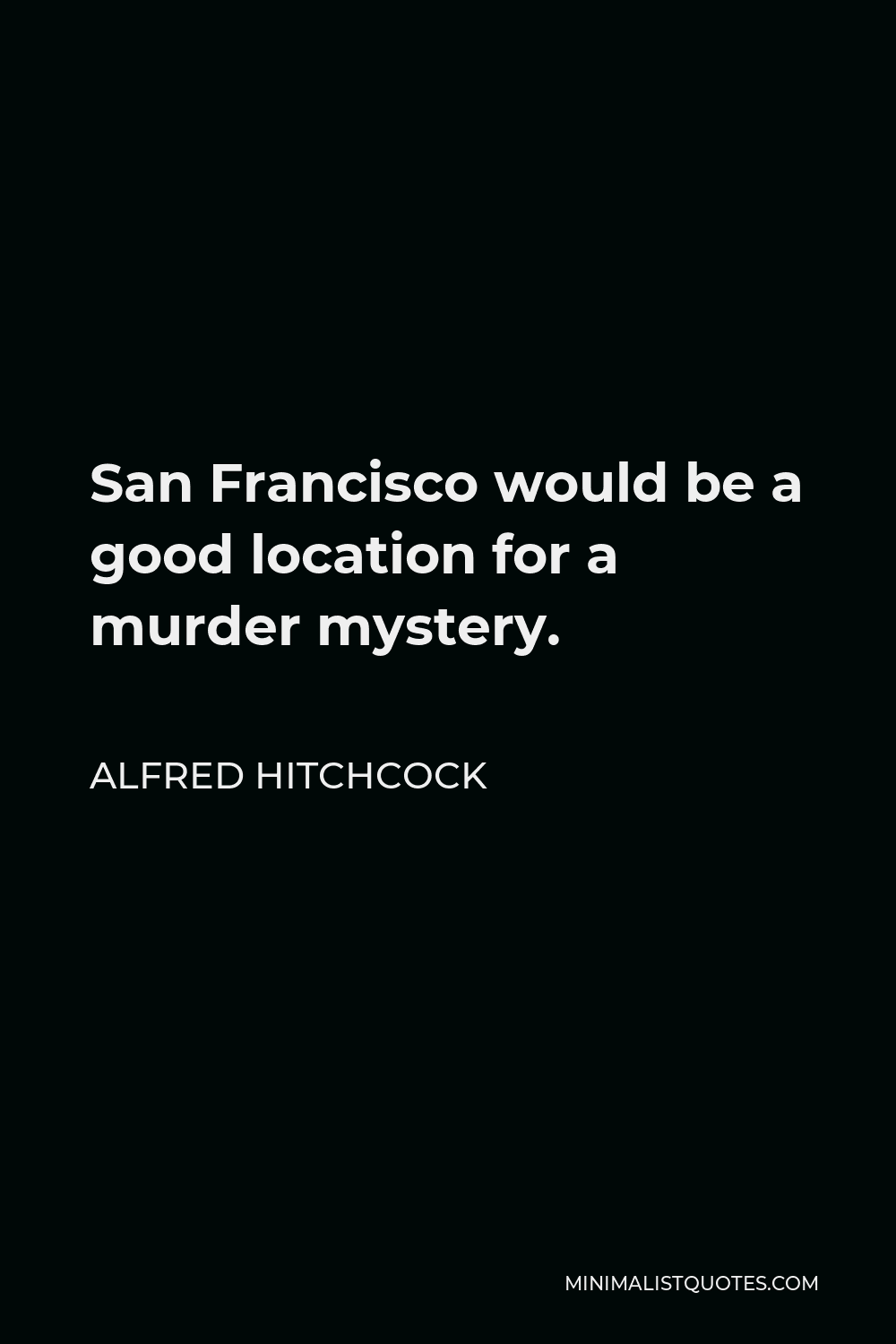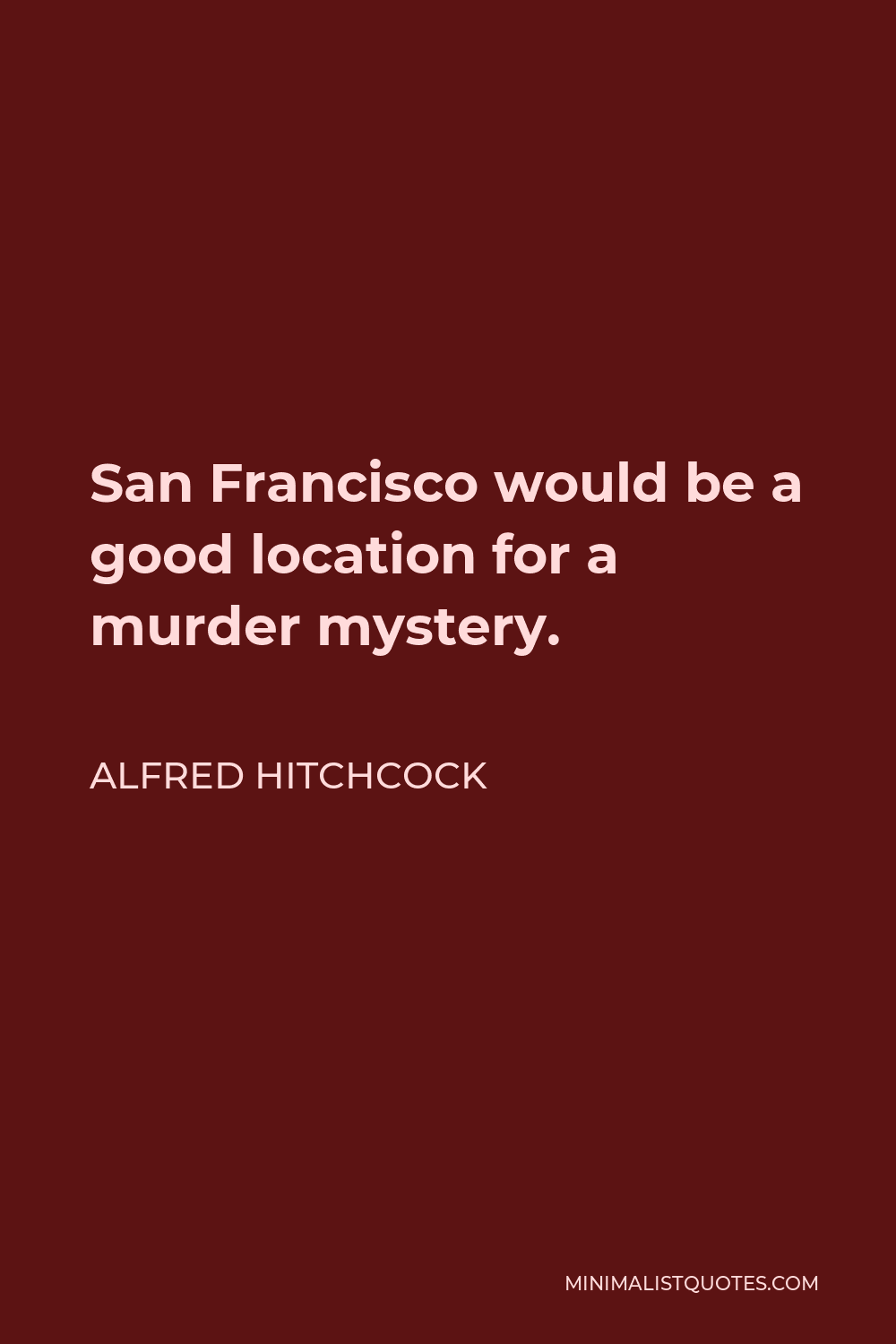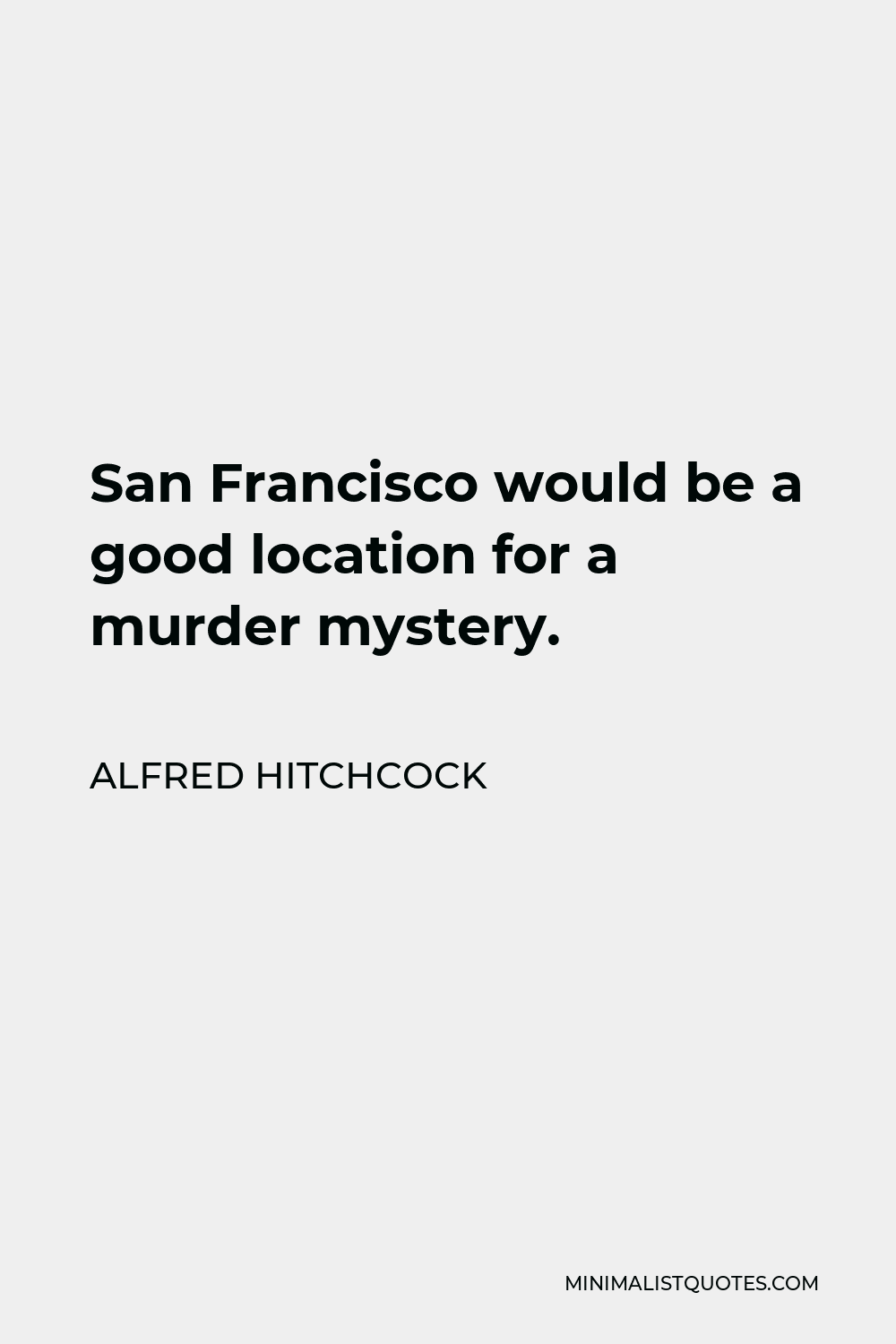It seems to me that television is exactly like a gun. Your enjoyment of it is determined by which end of it you’re on.
ALFRED HITCHCOCKSan Francisco would be a good location for a murder mystery.
More Alfred Hitchcock Quotes
-





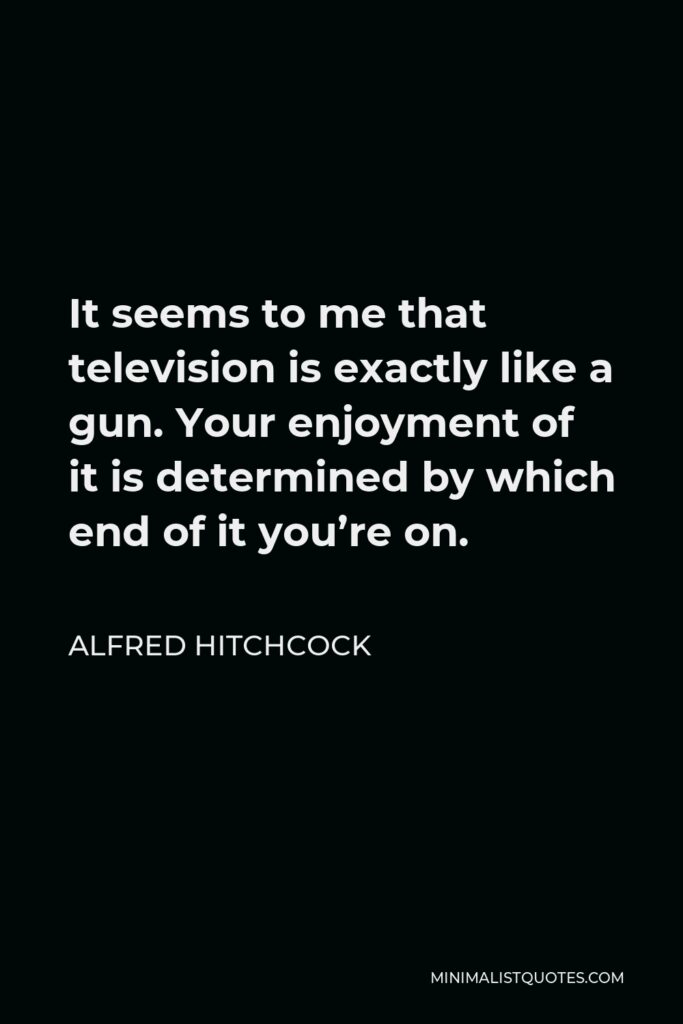

-





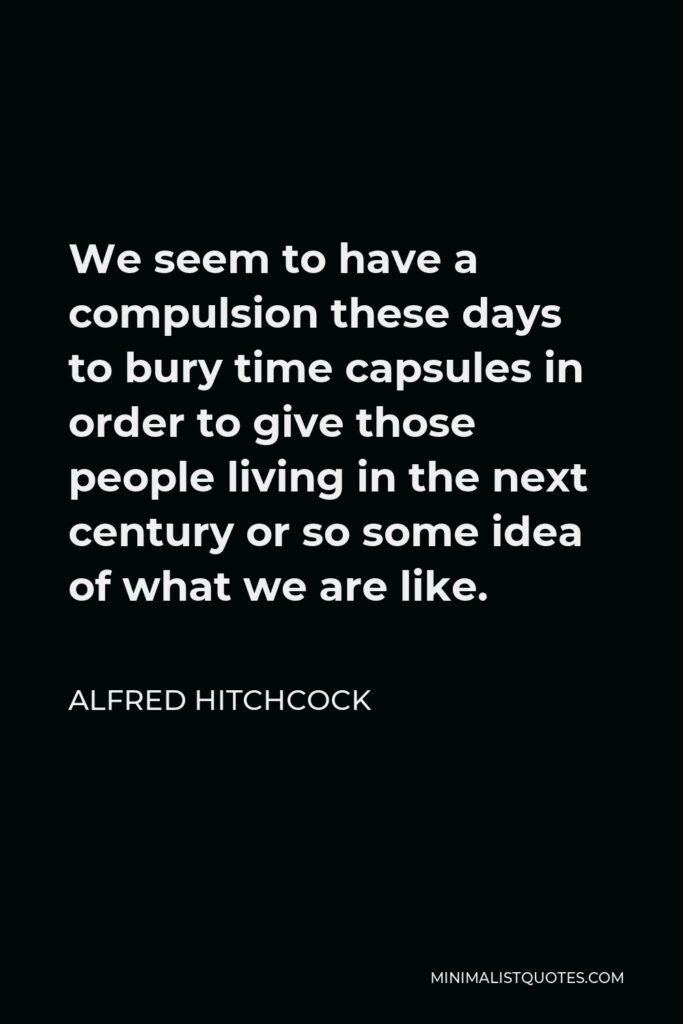

We seem to have a compulsion these days to bury time capsules in order to give those people living in the next century or so some idea of what we are like.
ALFRED HITCHCOCK -





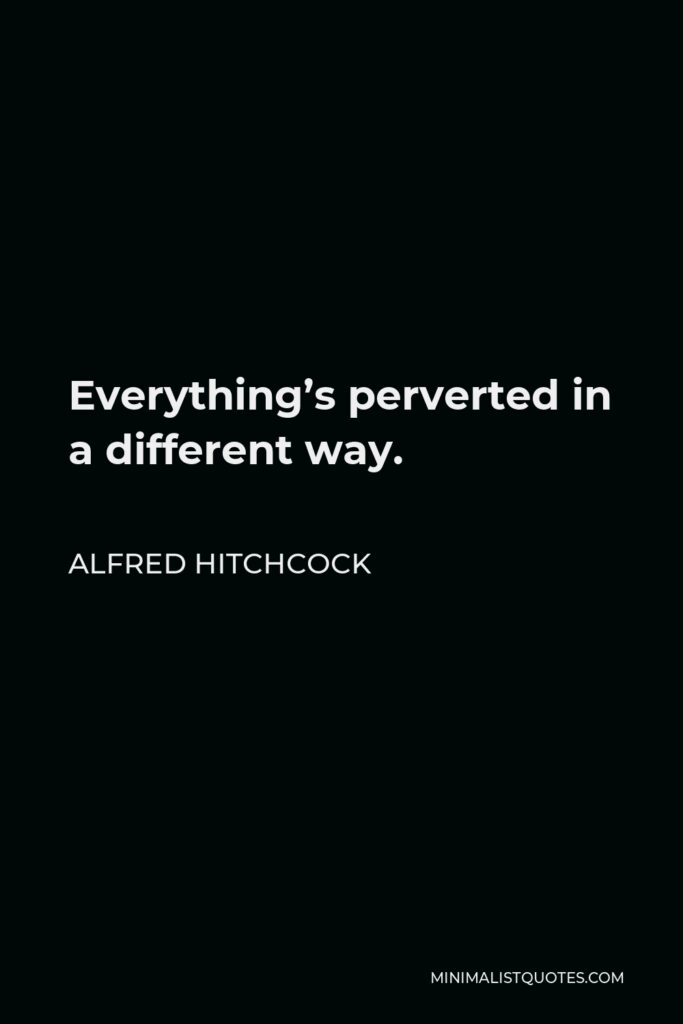

Everything’s perverted in a different way.
ALFRED HITCHCOCK -





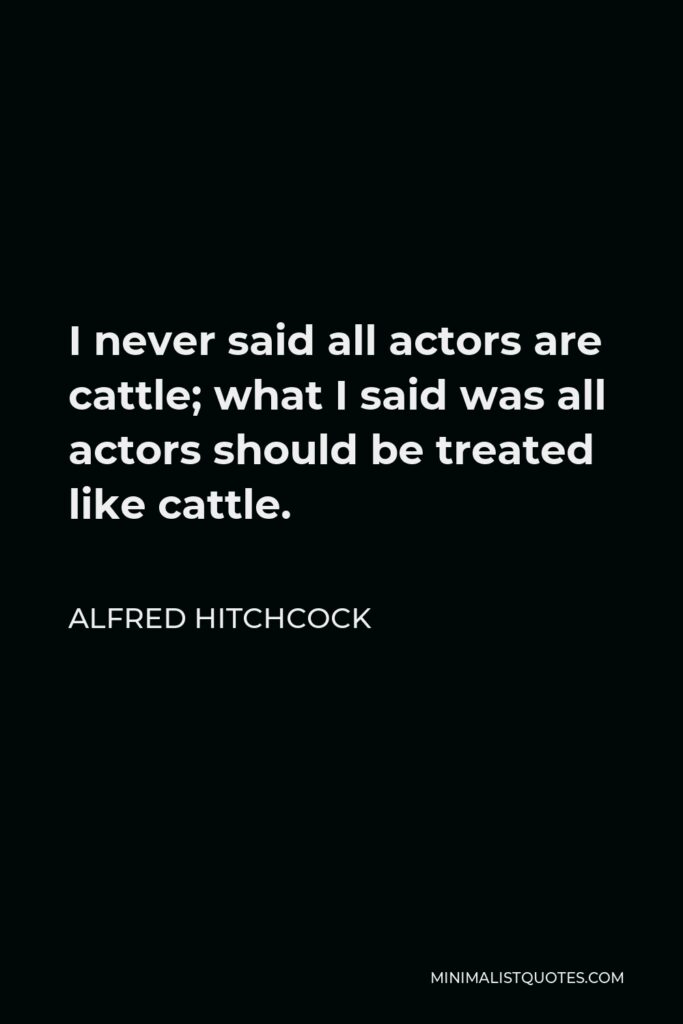

I never said all actors are cattle; what I said was all actors should be treated like cattle.
ALFRED HITCHCOCK -





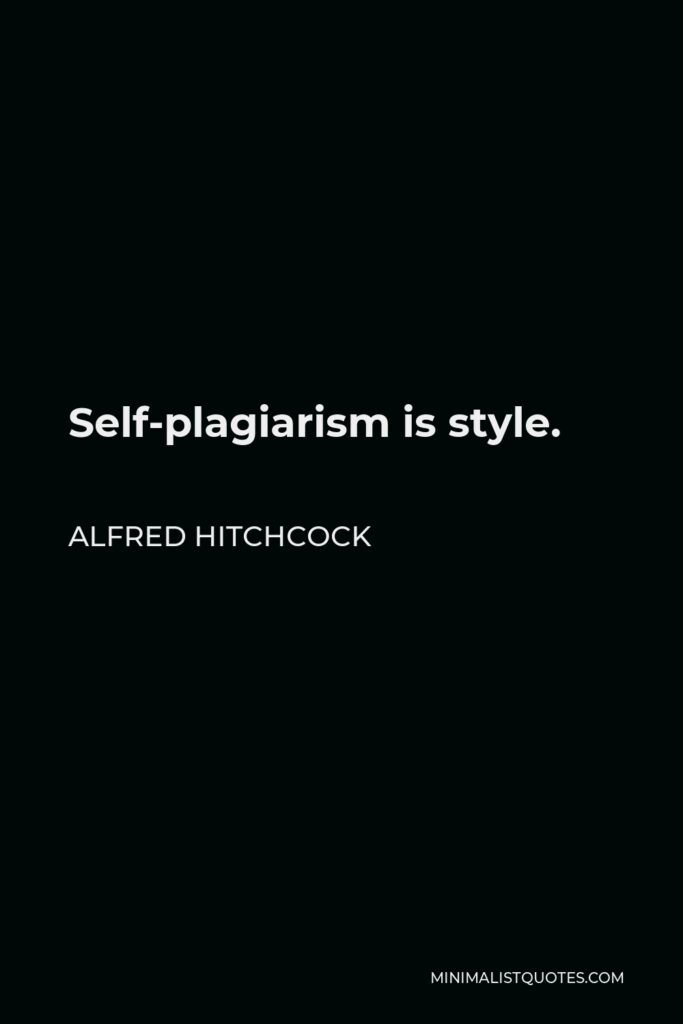

Self-plagiarism is style.
ALFRED HITCHCOCK -







I have a perfect cure for a sore throat: cut it.
ALFRED HITCHCOCK -





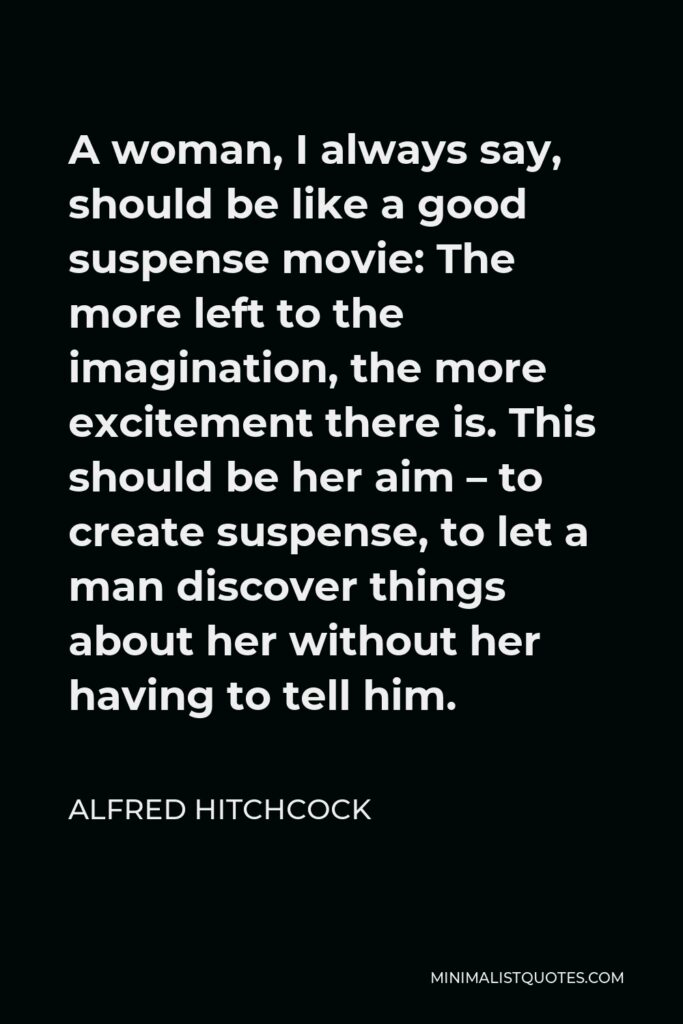

A woman, I always say, should be like a good suspense movie: The more left to the imagination, the more excitement there is. This should be her aim – to create suspense, to let a man discover things about her without her having to tell him.
ALFRED HITCHCOCK -





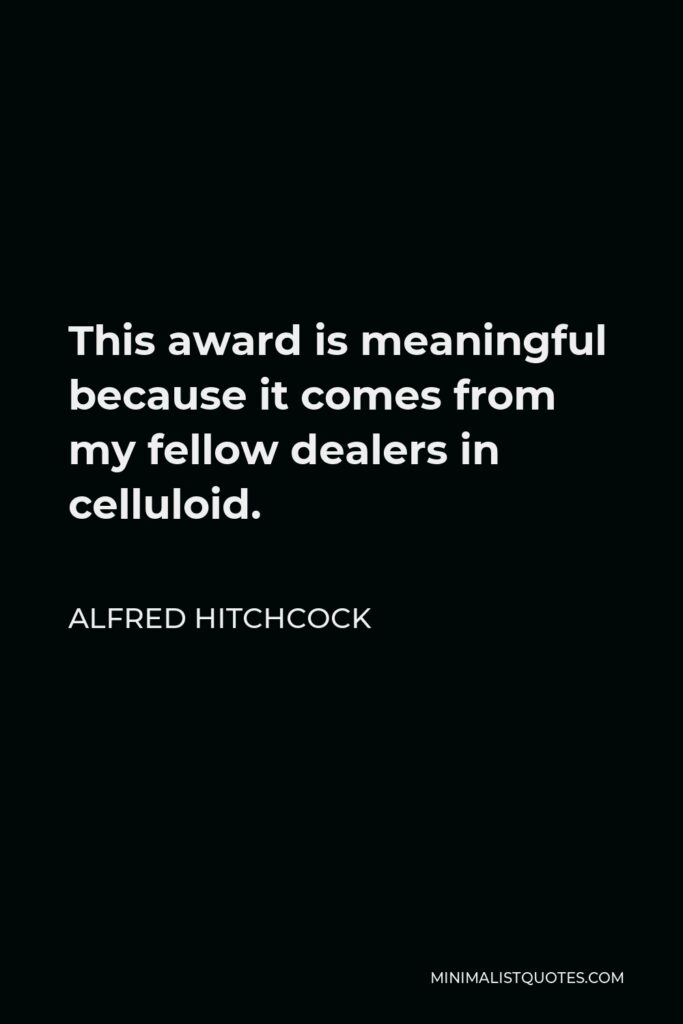

This award is meaningful because it comes from my fellow dealers in celluloid.
ALFRED HITCHCOCK -





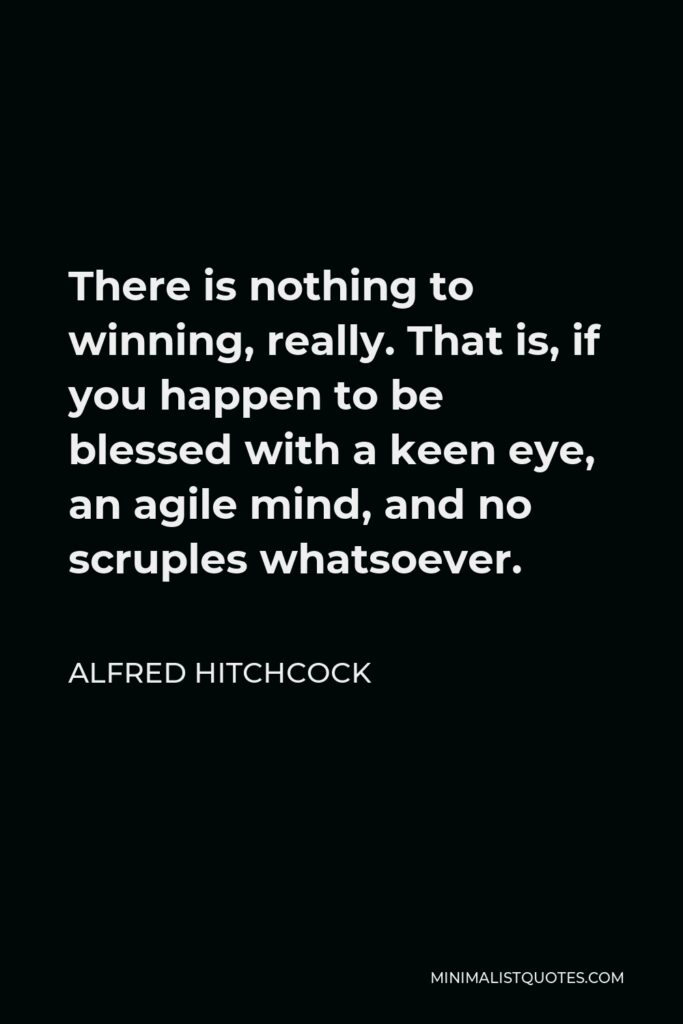

There is nothing to winning, really. That is, if you happen to be blessed with a keen eye, an agile mind, and no scruples whatsoever.
ALFRED HITCHCOCK -





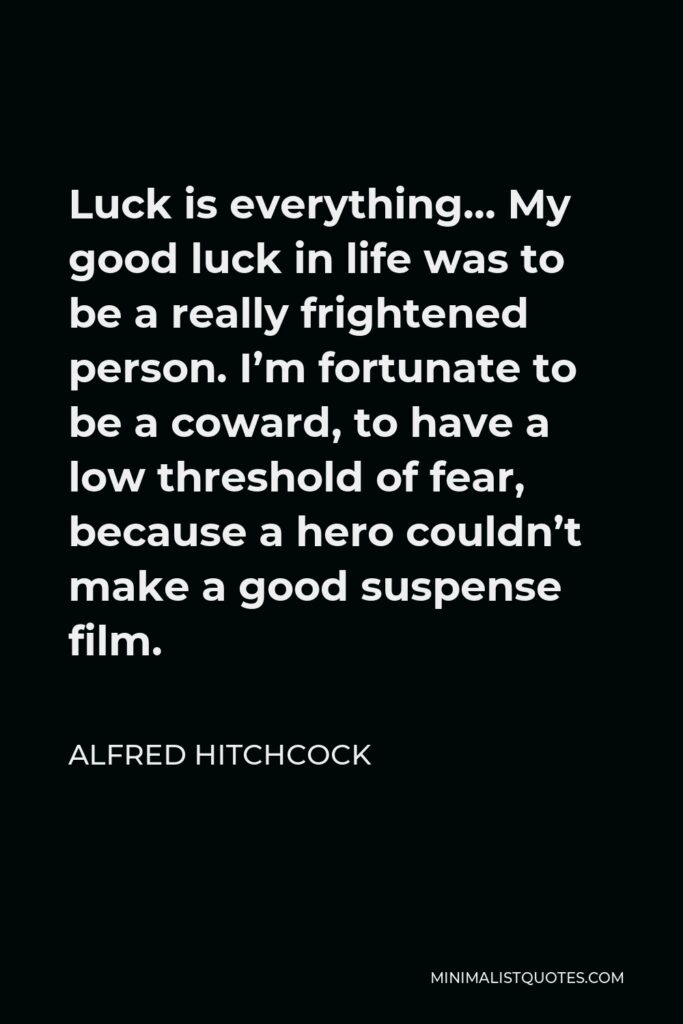

Luck is everything… My good luck in life was to be a really frightened person. I’m fortunate to be a coward, to have a low threshold of fear, because a hero couldn’t make a good suspense film.
ALFRED HITCHCOCK -





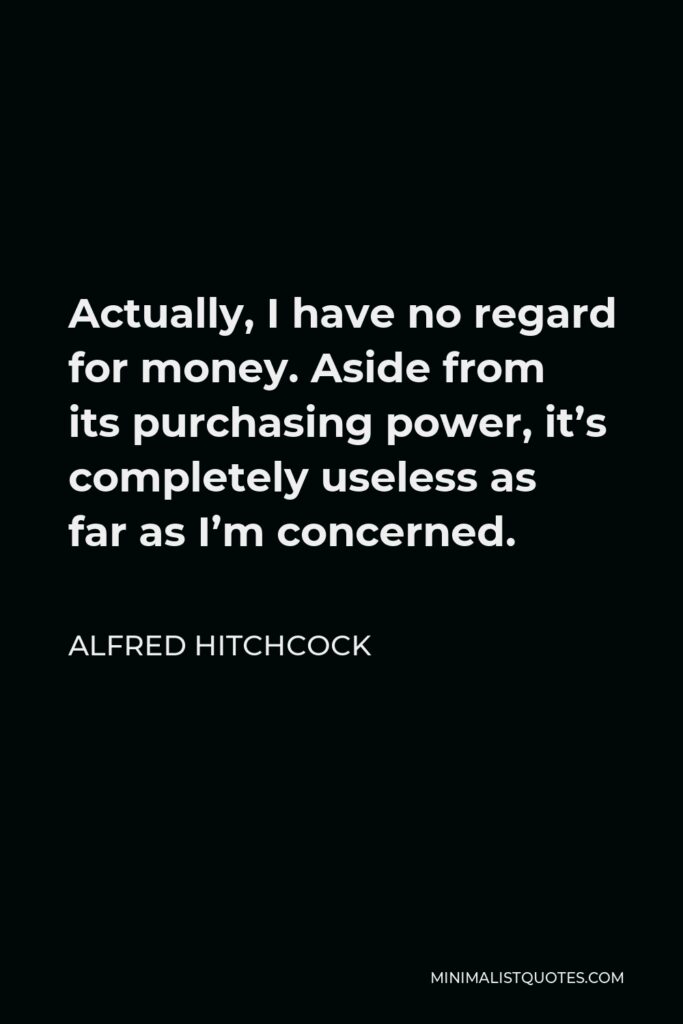

Actually, I have no regard for money. Aside from its purchasing power, it’s completely useless as far as I’m concerned.
ALFRED HITCHCOCK -







The ideal husband understands every word his wife doesn’t say.
ALFRED HITCHCOCK -





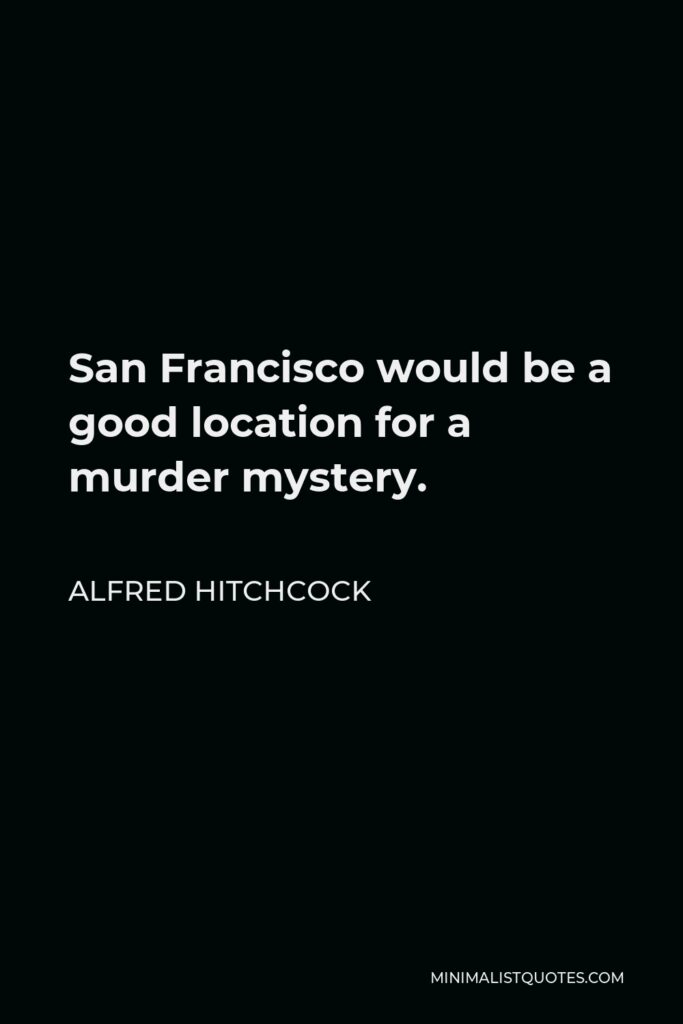

San Francisco would be a good location for a murder mystery.
ALFRED HITCHCOCK -







Some of our most exquisite murders have been domestic, performed with tenderness in simple, homey places like the kitchen table.
ALFRED HITCHCOCK -





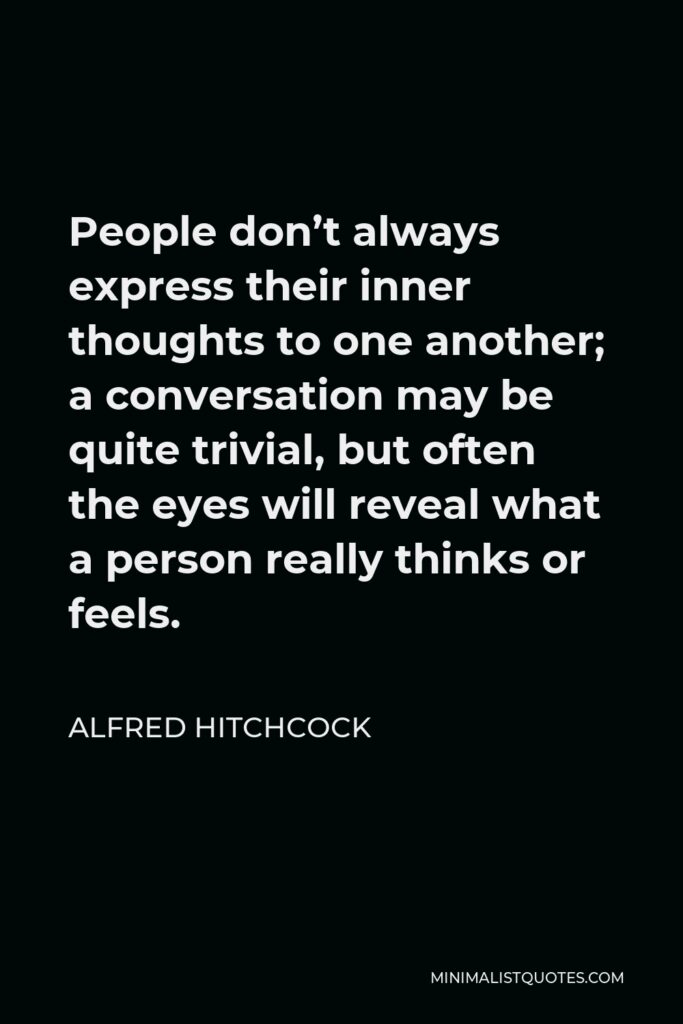

People don’t always express their inner thoughts to one another; a conversation may be quite trivial, but often the eyes will reveal what a person really thinks or feels.
ALFRED HITCHCOCK -





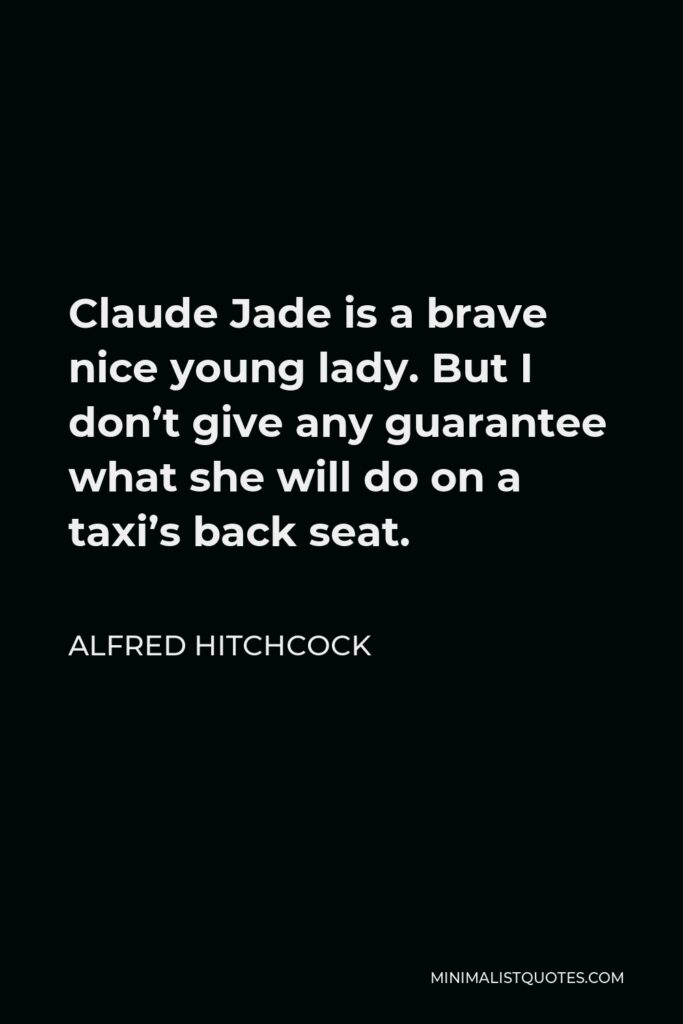

Claude Jade is a brave nice young lady. But I don’t give any guarantee what she will do on a taxi’s back seat.
ALFRED HITCHCOCK
